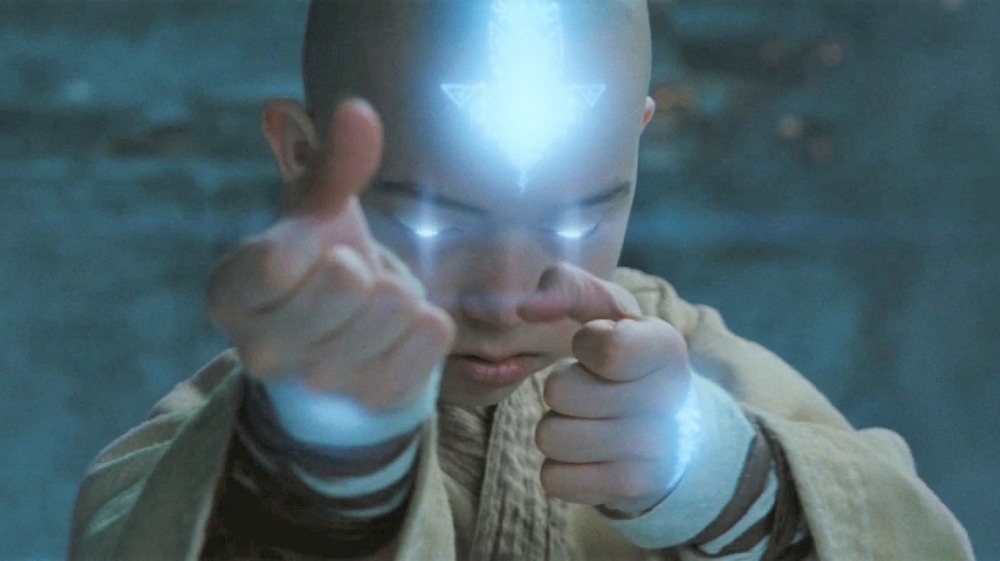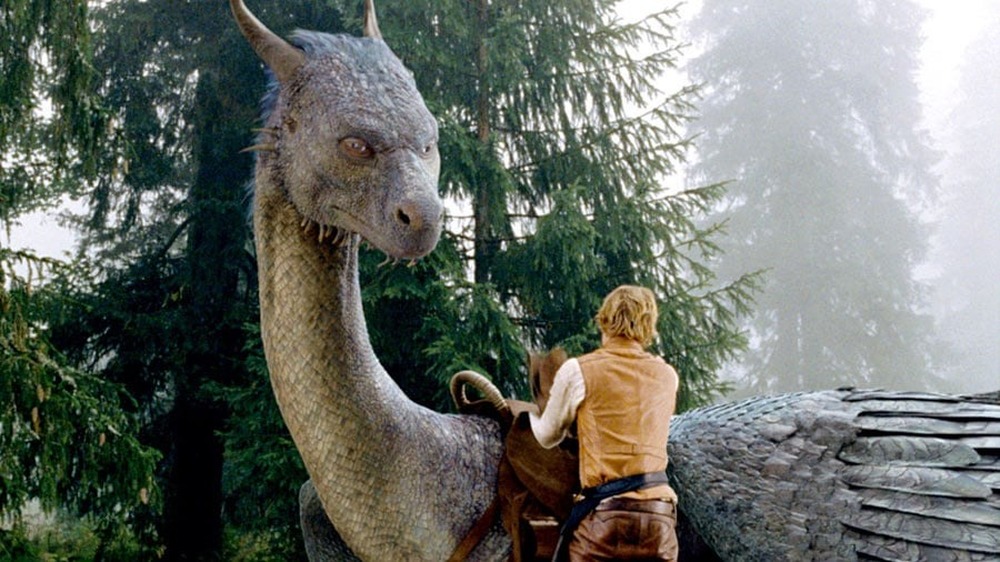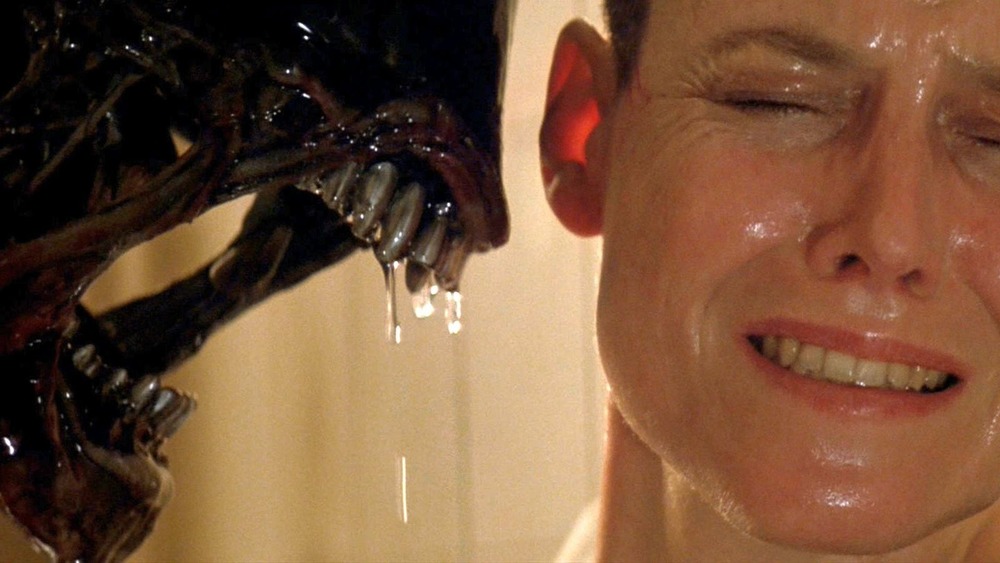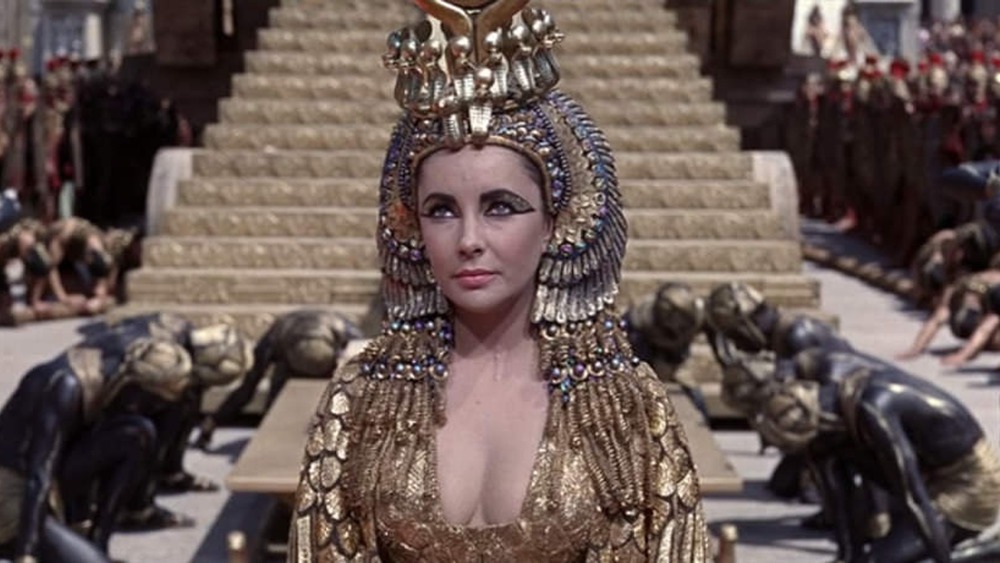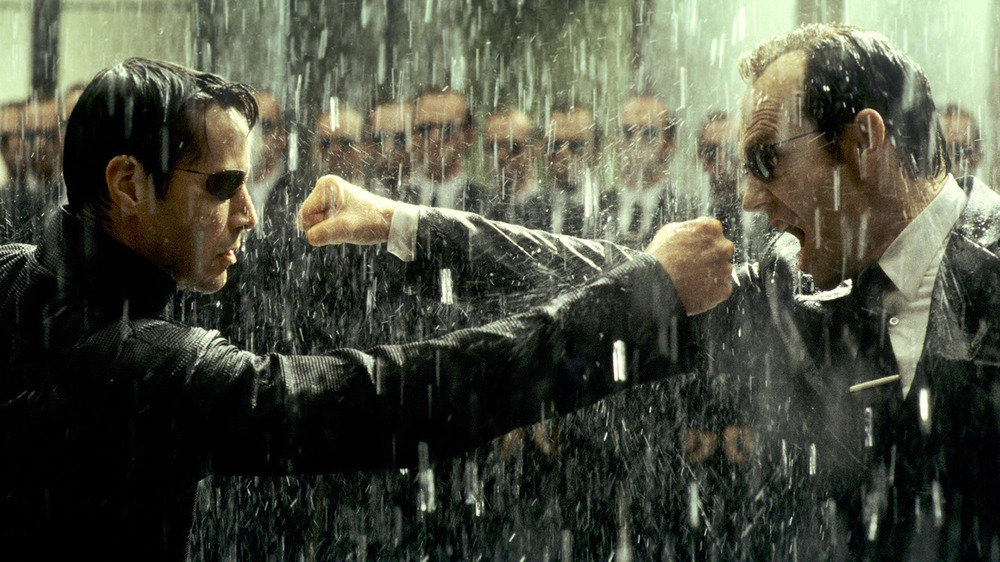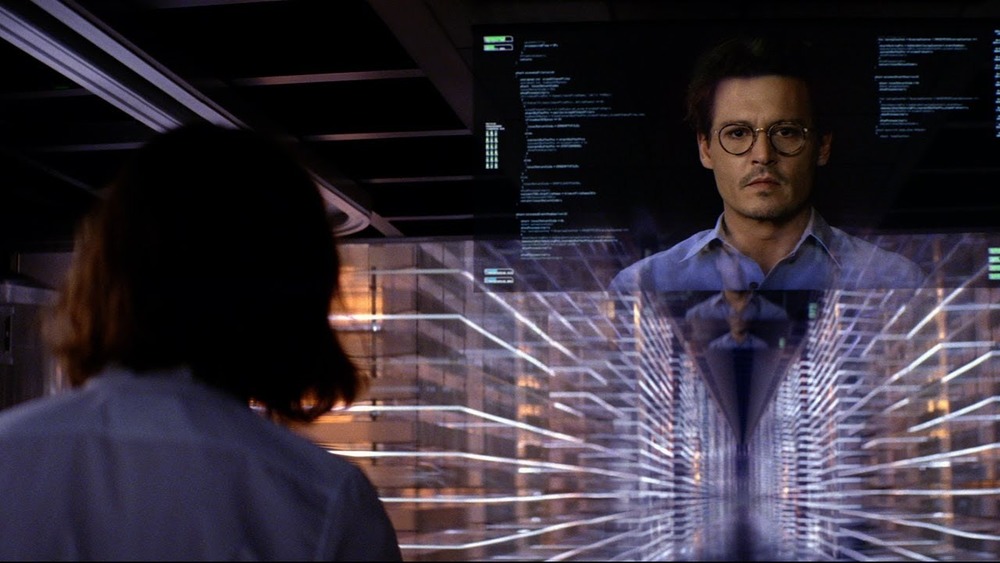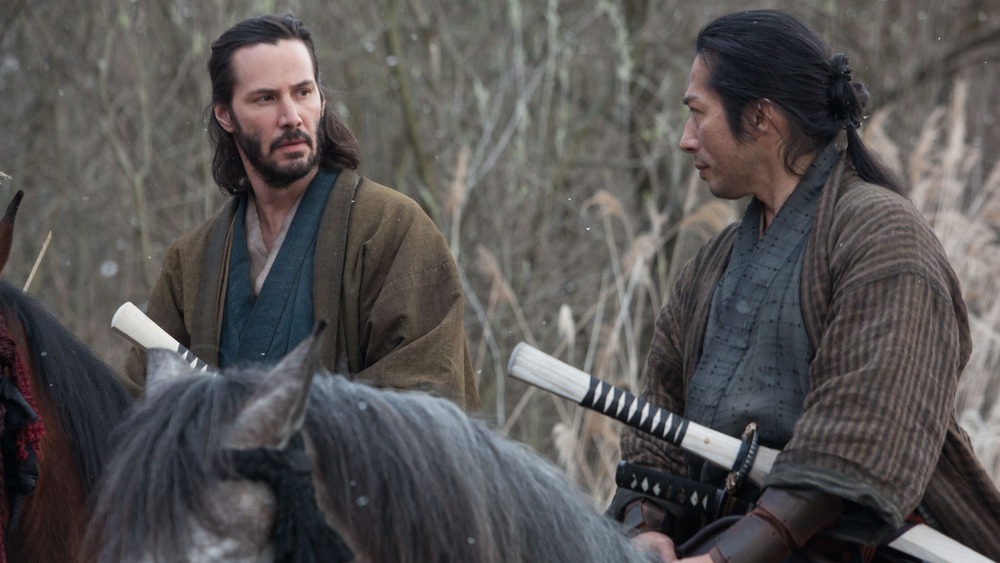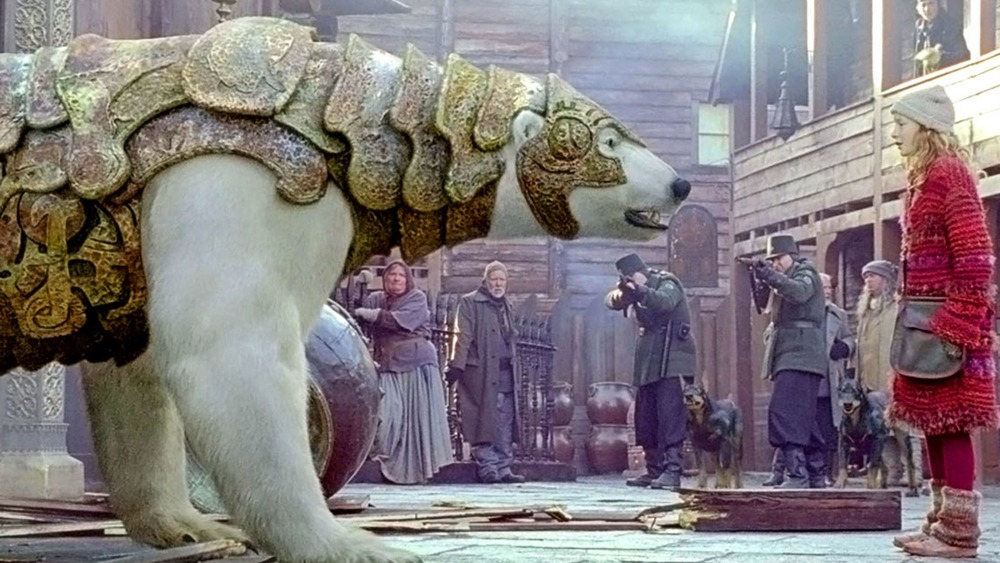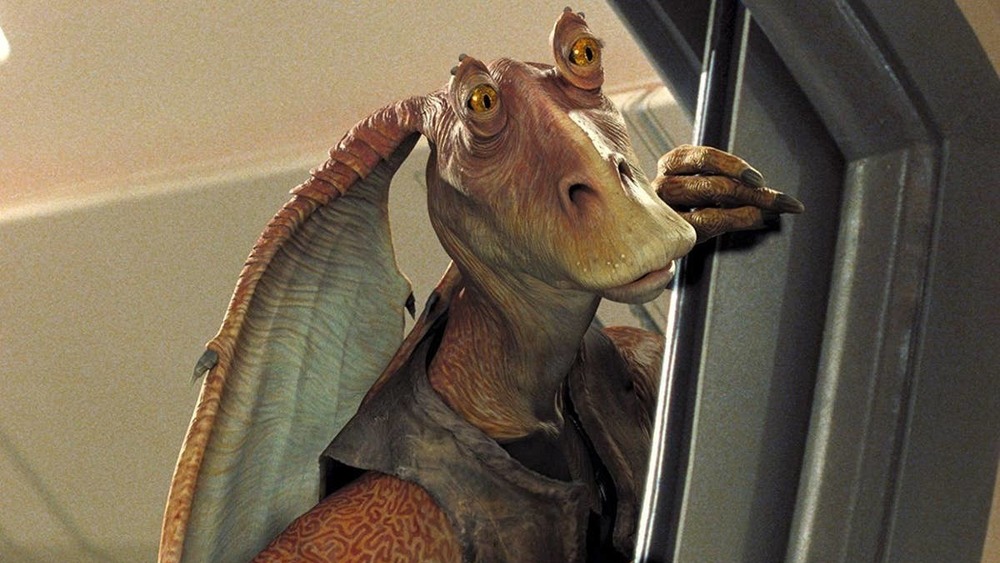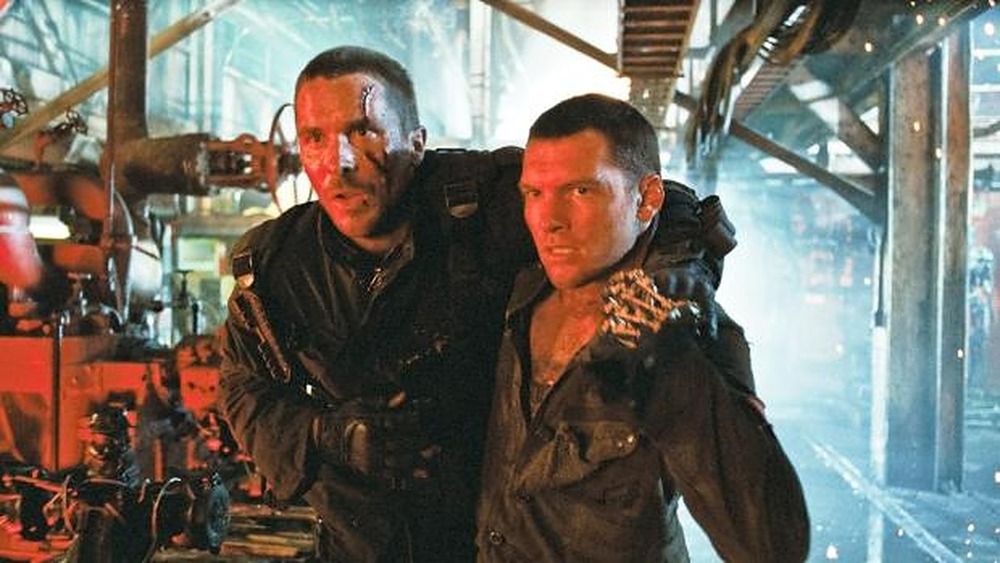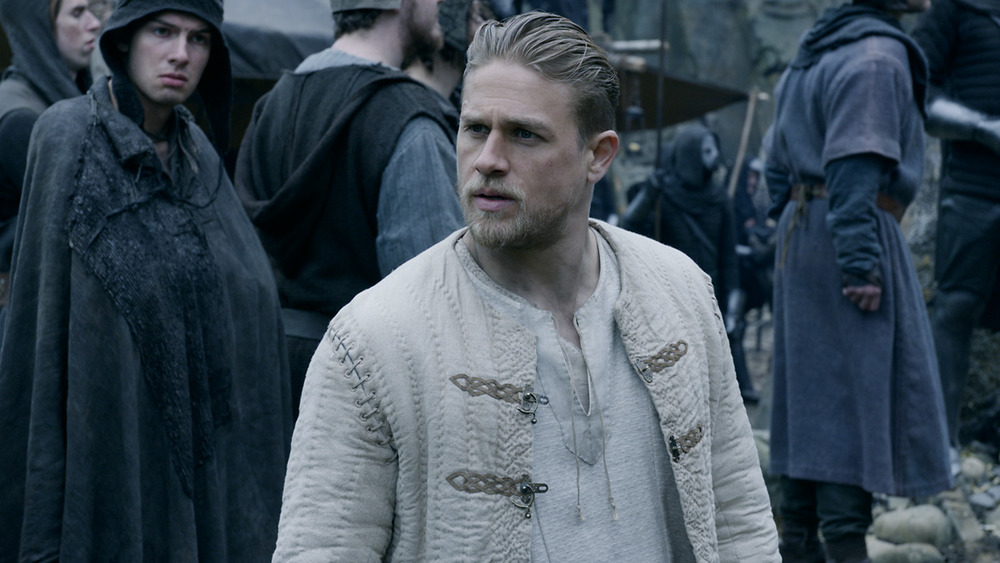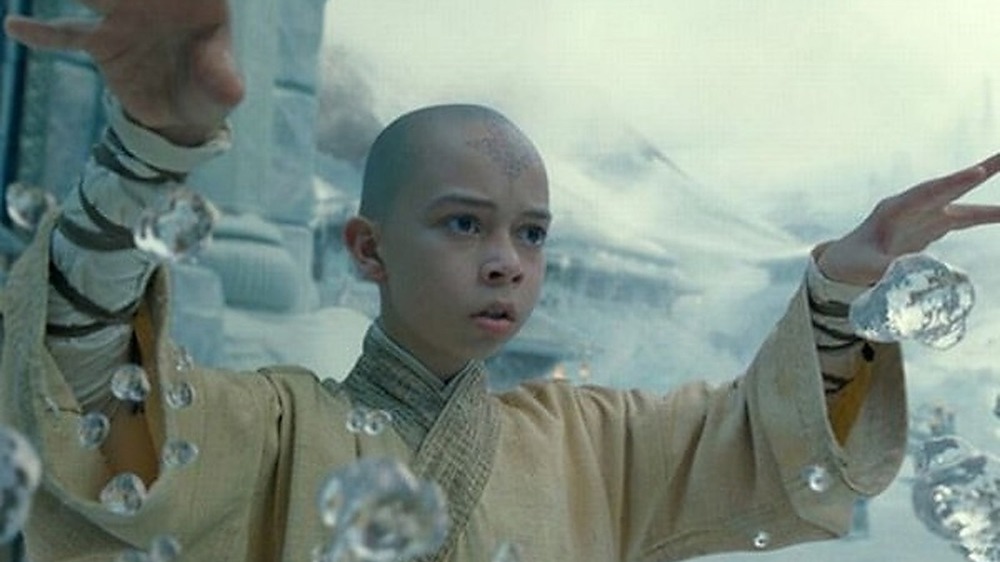Movies That Overpromised And Underdelivered
What makes a movie terrible? A lot of factors can contribute to a film's failure to live up to its own expectations. And sometimes, expectation itself is to blame. After all, it's one thing for a B-movie to be disappointing. It's another to be let down by a live-action adaptation of a popular fantasy series or the next installment of an iconic sci-fi trilogy.
Granted, sometimes fans do indeed set their expectations too high and judge too harshly. It's important to keep expectations realistic. But if a movie disappoints after a whole lot of hype, it definitely stings. Whether it's due to poor casting, low budgets, or subpar special effects, the films on this list were all lacking somehow. And since they majorly built themselves up before hitting theaters, that definitely doubles the offense. In other words, these films dug their own graves by promising exponentially more than they could deliver.
Eragon promised a massive world, but it failed to take flight
When one of our favorite books, especially one as epic as Eragon, is slated for a film adaptation, we as fans can be guilty of overhyping it ourselves, even in our own minds. And it certainly doesn't help when the advertising for the film itself feeds into our lofty expectations.
But while you'd think it'd be easy to make a movie where a story already exists (there's no pressure to come up with anything original, just pay suitable homage), this comes with its own set of challenges. And in order to meet those challenges, the filmmakers behind the Eragon movie decided to veer drastically from the source material. Part of this was due to the fact that the producers bought the rights to the story but didn't put a nearly large enough budget behind the project to support the massive world that author Christopher Paolini had built. Compare the film's $100 million budget to other big films from 2006, like Pirates of the Caribbean: Dead Man's Chest's $225 million budget or even The Da Vinci Code's $125 million budget.
Each book was a mammoth, with the first clocking in at over 500 pages no matter which version you're reading. While all literary adaptations cut out some of the original material, the producers of Eragon went at it with a hacksaw, eliminating critical points like Eragon raising Saphira and the fact that the Urgals are their own grotesque species rather than just humans with their faces painted. Couple that poor worldbuilding with some atrocious acting, and you get a lackluster tribute that disappointed fans who'd long yearned for an adaptation of their favorite epic fantasy.
Alien 3 didn't live up to its legacy
A sequel that lives up to the legacy of the original is a rare phenomenon in the film industry. A sequel that exceeds the precedent set by its ancestor is almost unheard of. But that's exactly what 1986's Aliens, the second installment of the Alien franchise, managed to do in the eyes of many critics and fans.
Unfortunately, the magic only worked once for the franchise, and in the case of 1992's Alien 3, it might've ultimately contributed to a future failure. The substantial and shocking success of Aliens got audiences even more excited for the next leg of the cinematic journey, but they were sorely disappointed. Even the film's director himself, David Fincher, essentially disowned what was his debut feature film. He'd felt like more of a "hired gun," as he put it to Vulture, after multiple other directors had come and gone from the project, leaving Fincher without much real control to begin with, even before being utterly usurped for the final cut.
So what do the fans (as well as critics and the director) hate so much about Alien 3? Apparently, it wasn't as genuinely thrilling as the previous, gripping installments, and the script lacked substance and ingenuity of its predecessors. As critic (and Alien 3 defender) Scout Tafoya has acknowledged, its pacing was too loose, and it suffered from a "too many cooks in the kitchen" predicament. In other words, it's an achievement the film is watchable at all.
Cleopatra overdelivered and underdelivered at the same time
A lot of movies build hype prior to their release and fall short, but if anything, 1963's Cleopatra did just the opposite, racking up about as many obstacles during production as you could imagine. At the time, it was the most expensive film ever made. According to The Guardian, even on a list adjusted for inflation, it's still the only pre-1998 film included in the 50 most expensive ever made. The scope of its budget meant that it was almost destined to be a flop.
On top of that, both cast and crew were replaced multiple times throughout production, and the shooting location also went through a tedious and expensive change. Plus, Cleopatra star Elizabeth Taylor almost died of pneumonia and then was sued for "depreciating the commercial value" of the film due to the infamous affair between the married Taylor and her married co-star, Richard Burton, during production.
All this considered, the film did incredibly well, if not as well as it was intended to. Cleopatra is a unique inclusion in this list because it won four Academy Awards. Eventually, it would become the highest-grossing picture of its release year. How is that underdelivering? Well, the film cost what today would amount to over $300 million, and it clocks in at over four hours long. For that amount of time and money, we'd expect something revolutionary — not something that initially lost money, nearly bankrupted its studio, and only started really making it when Fox sold the TV rights.
The Matrix Revolutions was anything but revolutionary
A glitch in the Matrix? Perhaps that's what The Matrix Revolutions was back in 2003. Of course, it's not like this three-quel was beholden to the same pressures as its predecessor. The first sequel, The Matrix Reloaded, released earlier the same year, was also widely regarded as a step down from the caliber of the original. But you could certainly say that Revolutions had the pressure of redemption and, more importantly, conclusion.
It was built up as the final installment of a groundbreaking saga. Instead, it featured underwhelming fight scenes, a watered-down Smith where there once stood an intense and formidable adversary, heavy-handed symbolism, and a needless cliffhanger at the end.
On top of that, cinematographer Bill Pope noted (via IndieWire) that the freedom the production had in the first film was completely lost in the second and third, partly due to the success and notoriety of the first and the resulting spotlight on any follow-up efforts. But the real culprit for the failure of The Matrix Revolutions might surprise you — Stanley Kubrick. Apparently, the Wachowskis had read a book where Kubrick said you only get a genuine performance from your actors once you tired them out. The result was a shoot that Pope described similarly to how we might describe the film itself — "sort of torture."
Transcendence overpromised with some really big ideas
Transcendence was a film that claimed to be as groundbreaking as its protagonist — Johnny Depp as a scientist turned uploaded consciousness, formerly working toward the "singularity." This singularity is hypothesized to be the point at which artificial intelligence becomes sentient enough to improve on its own, now capable of developing and "transcending" exponentially, even past the intelligence of the humans who brought it into existence.
Sounds ambitious, doesn't it? A little too ambitious, apparently, and with Johnny Depp and Morgan Freeman starring in the 2014 film, perhaps the production got a little too confident for its own good. Deadline speculated that the film failed in part because the script was somehow at the same time both complex and derivative. It was full of heavy-handed "intellectual" themes that lacked the substance or character/plot development to support them.
The character development probably could've saved the film because while the scope was massive in both metaphysical and futuristic terms, the actual story centered around the evolution of a single man. Except, he didn't actually evolve — he just went from an idealistic scientist to a megalomaniac in the blink of an eye. A more compelling character would've done so much more for the film than any philosophical or scientific musings.
47 Ronin was a fantastical failure
The film 47 Ronin was a massive financial flop, and the big kicker was that it was projected to be a huge loss before it even hit the big screen. But for the most part, these whispers of failure were kept quiet, with producers softly signaling the upcoming flop to investors. For all audiences knew, the film would live up to the hype for Lord of the Rings fantasy visuals meets Gladiator combat sequences. But apparently, consumers just weren't engaged enough, and the film reportedly lost up to $175 million due to its massive budget.
So what went wrong? Well, it wasn't completely the fault of 47 Ronin. That 2013 Christmas weekend at the box office, the film had to compete not only with The Wolf of Wall Street and American Hustle but also with two popular sequels, The Hobbit: The Desolation of Smaug and Anchorman 2. In fact, it was supposed to be released the previous year, but it was pushed back multiple times.
The trouble with the film's production could also be why the final product was so unappealing to critics. And though audiences liked it three times more than critics did, the film left its stars — including Keanu Reeves, who hadn't had a truly "major" role since The Matrix Revolutions in 2003 — stuck in one-dimensional characters.
The Golden Compass lost its way
Philip Pullman's His Dark Materials series is a bit untraditional when it comes to fantasy, leaning less on wizards and dragons and more heavily on concepts like religion, truth, and sentient human souls embodied by animals. Unsurprisingly, the unique fantasy series set in a parallel universe attracted a loyal fan base, including director Chris Weitz. In fact, it may have been his earnestness that set the expectations for a film adaptation even higher than the rabid fan base had already placed them.
Eager to adapt the novels, Weitz sent an unsolicited 40-page treatment to New Line Cinema, and he voluntarily interfaced with fans prior to filming, hoping to allay any fears they might've had that their beloved saga would be ruined. In short, he did everything he could to promise something great. And that's why it's so disastrous that something great didn't happen.
Released in 2007, The Golden Compass was generally derided for its deviations from the book, including a far more palatable execution that involved omitting the book's core anti-religious sentiment, as well as the tragic ending. In its quest to become more audience-friendly, the film actually alienated its audience. Fortunately, His Dark Materials fans now can take solace in the HBO miniseries.
Many fans thought The Phantom Menace couldn't compare to the original trilogy
The first film in the Star Wars prequel trilogy, The Phantom Menace, set expectations high in 1999. But while the technology involved in depicting a futuristic space saga had itself gotten a lot more futuristic since the first Star Wars film hit screens in 1977, this meant — to some fans, anyway — that the simple battle between good and evil at the heart of the original trilogy was lost in the glamor of a modern theatrical release.
Worse still, the prequel didn't really have a compelling good guy or bad guy. Rather, it centered around intergalactic trade disputes and poorly written conversation in place of action. There was a decided lack of tension and seemingly little point to the chosen plots.
The fundamental dullness of the film was exacerbated by little details that die-hard fans all across the internet love to hate. For example, The Phantom Menace marked the introduction of Jar Jar Binks, a character almost universally reviled by fans, to the point that it severely impacted the mental health of Ahmed Best, who played the character. The original Star Wars film came out over two decades before The Phantom Menace, which means that many of the fans fell into an adult demographic. While children loved him, Jar Jar Binks represented the juvenile sensibility that many audience members felt was part of what made the film such a disappointment.
Terminator Salvation overpromised what a robot war would look like
It seems like an unavoidable fact that, for the most part, the allure of a film series fades with each next installment. But with the Terminator franchise, this had already happened by 2009. The first and second movies, released in 1984 and 1991, respectively, were defining cinematic moments. The third Terminator film came out in 2003 ... and was universally accepted as a step down for the franchise.
But then came Terminator Salvation in '09. Its very existence set expectations high. Why? Because the only valid justification for extending the film series beyond the trilogy would be if the new film could improve things where the third one couldn't. It should've lived up to its name and been a savior to its namesake. But while there were certainly later films that were more despised, this film was massively underwhelming because it resurrected the franchise only to, as critics put it, rip its heart out.
The War of the Machines in Salvation didn't look anything like what we saw in Terminator 2: Judgment Day. Instead of looking futuristic with its laser and plasma weapons, which were based on James Cameron's vision and Kyle Reese's nightmares in the original film, Salvation's war looked just like any other earthly contest. In other words, the film was a standard military movie that, in this and other ways, shrugged off its revered source material and disappointed fans who wanted to see what was in store in the ravaged world after Judgment Day.
The Goldfinch has largely been forgotten
The 2013 novel The Goldfinch won a Pulitzer Prize for Fiction, so it's safe to say there's nothing lacking about the story. However, the film adaptation has a terrible 24% critics' score. Why, then, was the film adaptation such a disappointment to expectant audiences?
For one thing, the novel itself is almost 800 pages long, which means that it had to be sanded down quite a bit in order to reach the 149-minute runtime of the film. Variety commented that it may have been better suited for a multiple-season run on television, especially since novels are by nature more introspective in nature compared to the visual explicitness of film. It's a lot tougher for movies to grapple with lingering thoughts and details than literary fiction.
Also, The Goldfinch isn't just any novel. It deals with themes of trauma and survival, art and hope, all told through the coming-of-age of a young boy. With a marketing campaign that cost more than the film's budget itself, the film really wanted to bring these themes to its audience, but it ostensibly failed to do so. And with its $45 million budget, the movie earned less than $10 million, making it anything but golden at the box office.
King Arthur: The Legend of the Sword was an origin story that went nowhere
One of the oldest and most legendary stories learned the art of the box office flop in 2017 when King Arthur: The Legend of the Sword came to theaters. The film lost a kingdom's worth of money against its $175 million budget (not counting its marked publicity spending), perhaps because it was missing its queens. The feature, released on Mother's Day weekend, didn't have any women in leading roles. On that note, there was little of the sex, romance, or even combative action you'd expect in a medieval epic.
The actor who played the titular character, Charlie Hunnam, himself fell prey to majorly hyping up King Arthur ahead of its release. After all, the movie was supposed to be one of the biggest blockbusters of the summer season. And according to PopCulture.com, after six weeks on the road for promotional touring, Hunnam felt like he was completely submerged in "the experience of trying to sell that film." Of course, that kind of promotion builds up a certain level of expectation.
The expectation, though, was for a consummate film, not an origin story that barely qualified as a "story" at all. It was supposed to set up a multi-movie universe, but it made the mistake of banking so much on future films that it forgot to include much of the character's story in the original installment itself.
Despite its source material, The Last Airbender majorly underdelivered
One of Nickelodeon's most popular shows, Avatar: The Last Airbender, which ran from 2005 to 2008, defined a generation, and it's often cited as one of the best animated series of all time. To be fair, the show left some pretty big shoes to fill. But the 2010 film adaptation decided to walk barefoot, shirking everything from character names to the aesthetics and influence of bending.
The entire premise of the show is based around the supernatural ability to powerfully bend the basic elements of nature, but what we see in the film essentially amounts to a couple puffs of smoke. Plus, the mythology, martial arts, aesthetics, characters, and even the bending styles of the original series are based on various Asian cultures. So one of the biggest criticisms of the film was that it whitewashed pretty much everything.
On top of that, the dialogue written for the animated series featured both quotable wisdom for all ages and relatable comments for younger viewers. Every line in the live-action adaptation, however, seemed strained and stilted, perhaps an over-compensation for the dull martial arts and bending scenes. Honestly, with its 5% critics' score on Rotten Tomatoes, it might be the greatest example of a film that just couldn't deliver on any of its promises.
